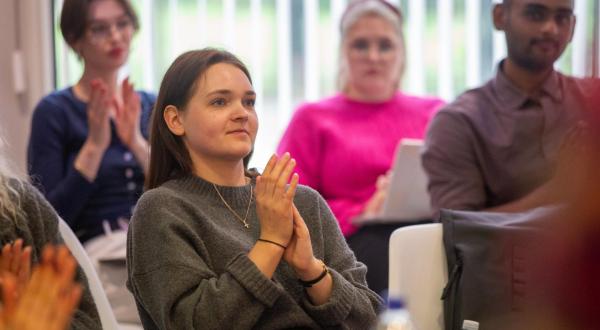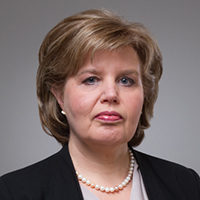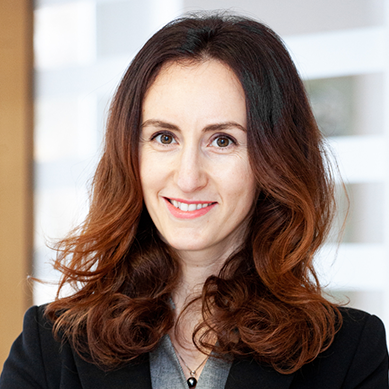RSU to reduce the number of faculties and introduce a unique study management structure in Latvia
Rīga Stradiņš University (RSU) will merge several faculties and establish new structural units to implement good governance principles, promote the quality of studies, interdisciplinarity, and research excellence. Instead of the current nine faculties, going forward RSU will have five – the Faculty of Medicine, the Faculty of Dentistry, the Faculty of Pharmacy, the Faculty of Health and Sports Sciences, and the Faculty of Social Sciences.
The Faculty of Public Health and Social Welfare and the Faculty of Rehabilitation will merge to create the new Faculty of Health and Sports Sciences. It will be lead by Prof. Inga Millere, the current dean of the Faculty of Public Health and Social Welfare.
The ongoing work towards developing research and improving the quality of studies will not only continue, but also expand in an interdisciplinary manner. We aim to increase opportunities for collaboration between students, lecturers, structural units, and study programmes. This will not only broaden the education we offer, for example, through the creation of new interdisciplinary courses and study programmes, but also create a multi-professional environment for generating and developing new research ideas.
Prof. Inga Millere
As a result of these changes, the Faculty of Health and Sports Sciences will be able to implement most of the health-related study programmes. The RSU Liepāja branch, the Psychology Laboratory, as well as the RSU Red Cross Medical College will continue to operate under the auspices of the faculty.
The most ambitious management innovations will take place in the newly established Faculty of Social Sciences. The structure and operating principles have been borrowed from the US universities – the University at Buffalo and the Massachusetts Institute of Technology, where RSU lecturers have repeatedly gone on experience exchange visits. The new Faculty of Social Sciences, whose dean will be the current Vice-Dean of the Faculty of Law Assoc. Prof. Karina Palkova, will combine the Faculty of Law, the Faculty of Communication, and the Faculty of European Studies. The new faculty will also include a new Social Sciences Research Centre, which will aim to promote the targeted development of excellent research at the newly-established Faculty of Social Sciences and at RSU as a whole. The centre will focus on developing focused interdisciplinary social sciences research and refining theoretical approaches to addressing complex societal issues.
The new RSU Faculty of Social Sciences is the first in Latvia to thoughtfully merge several disciplines, based on the latest trends in higher education, strengthening interdisciplinary research and the quality of studies. The faculty will no longer have the traditional system of departments, but all study programmes will be merged into working groups that will contain related study programmes. Each such group will be headed by a single programme group leader. The faculty will focus on the quality management of the programme groups, minimising the administrative and bureaucratic burden on academic staff and researchers. Students will have a broader choice in their learning process and intensive interdisciplinary research practice from the beginning of their studies. This will be ensured by utilising the infrastructure of the Social Sciences Research Centre in the study process.
The new Faculty of Social Sciences is structured according to a contemporary and dynamic concept. Its focus is based on creating an interdisciplinary environment in both teaching and research. The interaction of students, lecturers, and researchers in an interdisciplinary environment promotes more innovative thinking, synergies, and the possibility to address complex societal issues that require a multifaceted approach. The faculty's well-designed ecosystem enables researchers to focus on high-quality research results, allows academic staff to conduct their lectures in larger lecture halls and gain the satisfaction of working in several disciplines. Of course, our students will benefit the most, as they will enjoy a new infrastructure, simulation-based learning, and a well-thought-out study process that will help them find a good job quickly. In addition, this structure is highly promising for young researchers, with its timely understanding of the added value of research skills. This will allow students to make informed choices about a doctoral career, or to use their research skills and practice in any sector of the Latvian economy.
Assist. Prof. Karina Palkova
Related news
 18 Student teams to start developing their ideas in B-Space incubation programmeFor RSU Employees, For Students, Innovation, B-Space
18 Student teams to start developing their ideas in B-Space incubation programmeFor RSU Employees, For Students, Innovation, B-Space




